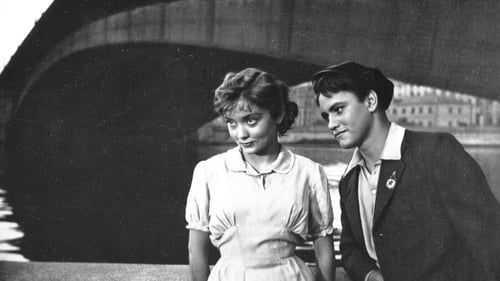
interventionist
1918 year. A woman commissar has been appointed from the Central Committee of the Bolshevik Party to the Russian warship Gromoboi, which is ruled by anarchist sailors. The leader of the ship is the anarchist Vozhak. The Commissioner was instructed to reorganize the naval detachment into the First Sailor Regiment. She faces a difficult task: to win the authority of the sailors and eradicate anarchy. Of the remaining officers on the ship — lieutenant Bering, who served in the tsarist fleet on the battleship "Emperor Paul I". He must become the commander and, together with the sent commissar, lead the regiment to the front in the Black Sea region.

Sergey Serov

Petro
Ivan Brovkin finishes serving in the army with the rank of sergeant and, together with a group of comrades after demobilization, decides to go to the development of state farm. He arrives at his native collective farm and meets there a cool welcome: the chairman of the collective farm, the bride Lyubasha and mother — consider him a traitor. The planned wedding is canceled, and Brovkin leaves for the state farm.
Brovkin comes to the state farm at the time of plowing the land. He joins the team. Winter passes after working days. In letters home he writes that everything is fine with him. News about how Ivan lives is spreading throughout the village. Lyubasha is seriously thinking about running away from home to the state farm...

Igor
1935. Two families — Davydov's with three children and the newlyweds Lida and Dmitri Kashirin's — enter the new house on the outskirts of Moscow into a common communal apartment. The children grow up, and they and the adults around them are looking for their place in life, looking for answers to the questions of who to be and what to be, quarreling, making peace, building relationships, destroying them. Six years later, the peaceful lives of characters, with their joys and misfortunes, quarrels and reconciliations, and complex personal relationships, are blown up by a war that connects everyone at once, forcing them to see the meaning of their days, their attitudes to each other and their life values in a different way. For some of them, war is a fatal trait.

Max
The Killers is a 1956 student film by the Soviet and Russian film director Andrei Tarkovsky and his fellow students Marika Beiku and Aleksandr Gordon. The film is based on the short story "The Killers" by Ernest Hemingway, written in 1927. It was Tarkovsky's first film, produced when he was a student at the State Institute of Cinematography.



